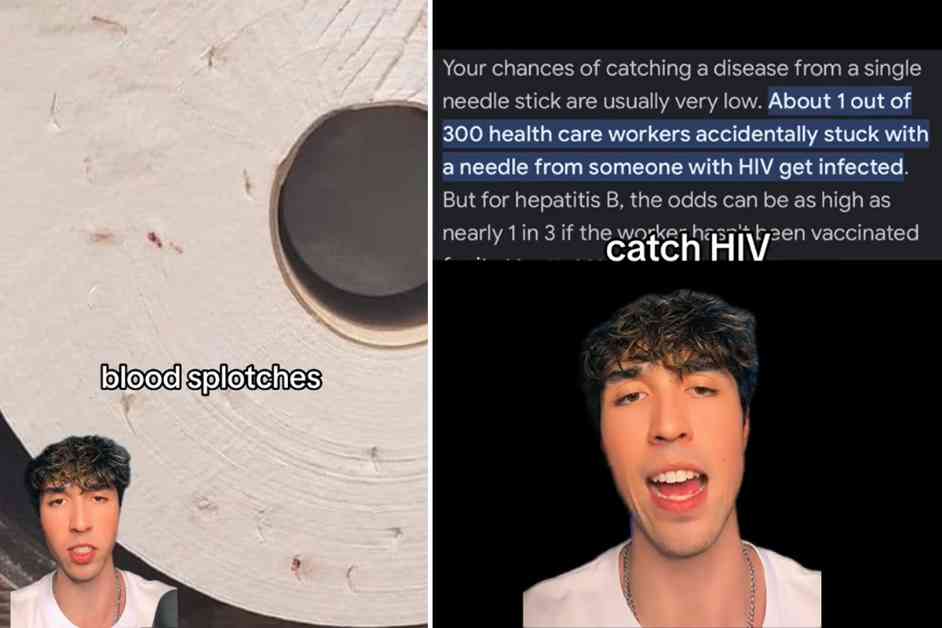Walmart Employee’s Shocking Revelation: Drug Users Contaminating Toilet Paper Rolls
Devan, a Walmart employee known as @601devan on TikTok, recently sounded the alarm on a disturbing trend that could potentially put women at risk. In a viral video posted from his car while wearing the blue Walmart vest, Devan warned female customers about IV drug users cleaning their needles in toilet paper rolls within the retailer’s public bathrooms.
The Urgent Warning
“If you use public bathrooms, stop what you’re doing, and listen to this,” Devan urged viewers in his public service announcement. He emphasized the importance of inspecting toilet paper dispensers and the rolls themselves before use to avoid contamination from drug users and their needles. Devan accompanied his message with a photo of a toilet paper roll covered in red holes resembling bloodstains, serving as a grim reminder of the potential dangers lurking in public restrooms.
Identifying the Risk
While Devan acknowledged that not all rolls may exhibit visible blood spots, he advised customers to check for pin-like holes as needles may not always contain visible blood after use. His message specifically targeted female customers, emphasizing the importance of checking toilet paper before use or bringing personal wipes as a precautionary measure.
Viral Videos Spark Fear
Devan’s warning resonated with thousands of viewers, sparking a newfound fear of public restrooms among many. Comments flooded in expressing shock and gratitude for the eye-opening advice, with some individuals even vowing to forgo wiping if necessary. The unsettling revelations shed light on a dark reality of substance abuse crisis in the United States, underscoring the urgent need for vigilance and caution in public spaces.
Expert Insights on Contamination Risks
In a separate viral video, social media watchdog Dane Jones delved into the risks of encountering drug-contaminated blood from bathroom toilet paper. While not a medical professional, Jones highlighted the potential dangers of exposure to HIV/AIDS and hepatitis B or C infections through contaminated surfaces.
Understanding Disease Transmission
According to the US Centers for Disease Control and Prevention (CDC), hepatitis B and C can spread through shared needles, mother-to-child transmission, and sexual contact. HIV transmission, on the other hand, requires direct contact with specific bodily fluids from an infected person, such as blood, semen, vaginal fluids, rectal fluids, and breast milk.
Takeaway Message
The alarming revelations by Devan and Jones serve as a stark reminder of the unseen risks that lurk in public restrooms. As we navigate public spaces, it is crucial to exercise caution, remain vigilant, and prioritize personal hygiene to mitigate potential health hazards. Remember, a simple check of toilet paper could make all the difference in safeguarding your well-being. Stay informed, stay safe, and stay vigilant.













